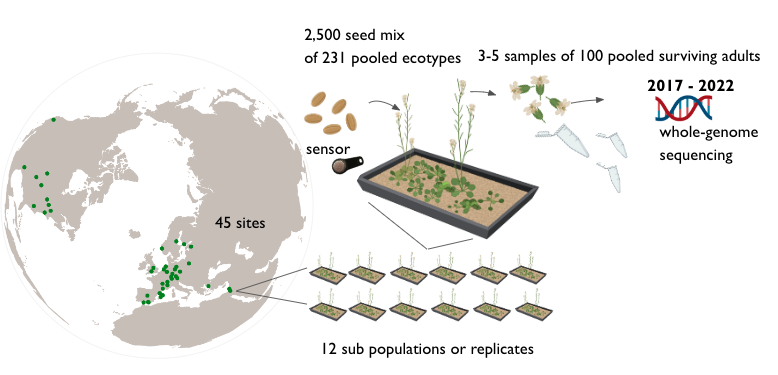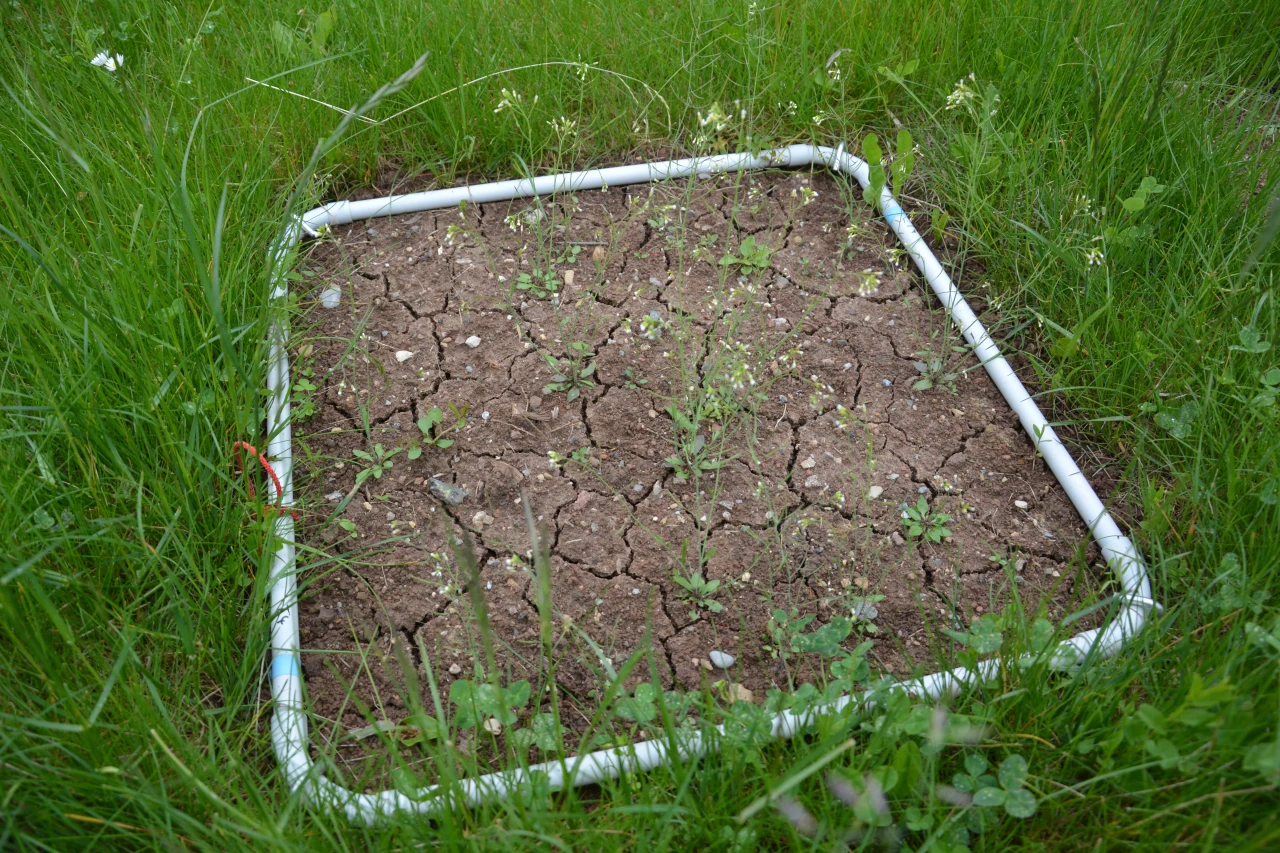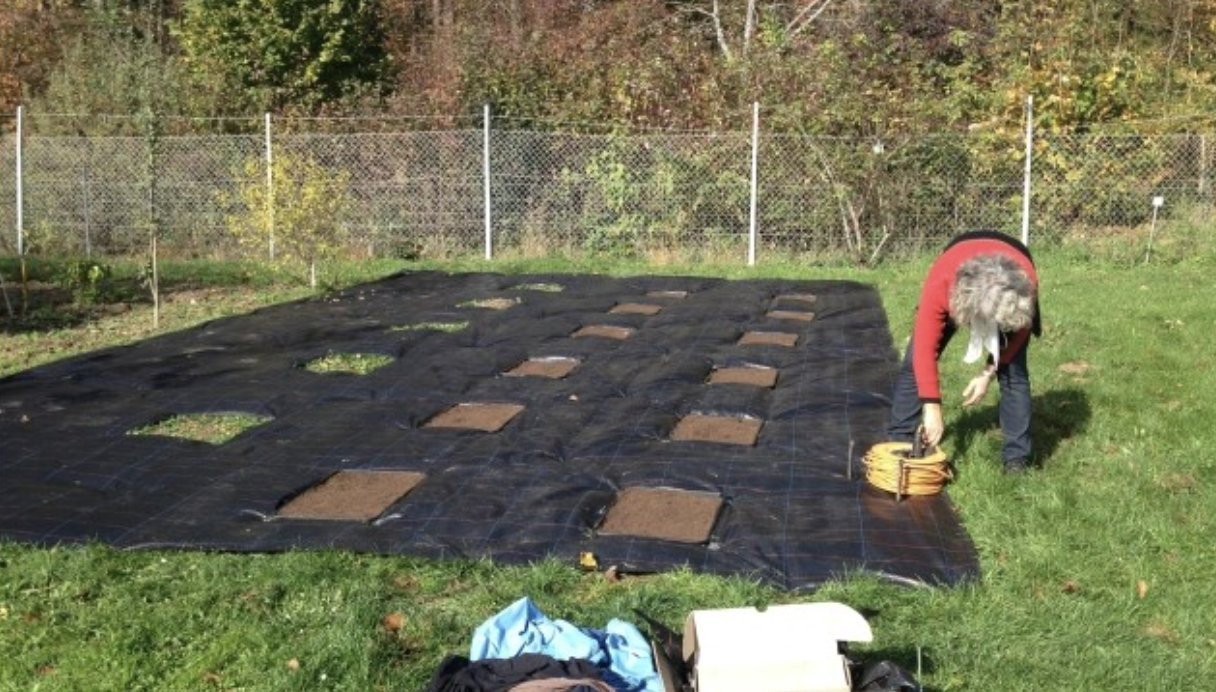Welcome to the GrENE net Project!
The paradigm that evolution of species is a gradual, slow process, has been challenged. There are plenty of examples, from mammals, birds, plants, insects, that evolution can be rapid. However, we are still still struggling to understand whether the genetic underpinnings and architecture of such rapid adaptations are predictable, especially in novel future climates.
With a large network of collaborators (see Team), we are creating a benchmark experiment to test and predict rapid evolution across climates of multiple continents. This network is called GrENE-net – Genomics of rapid Evolution in Novel Environments – and is set up as a coordinated distributed experiment with Arabidopsis thaliana.

Participants of this network received seed mixtures of c. 200 natural accessions of Arabidopsis thaliana which they sowed into small replicated plots in 2017, which have been on their own evolving since!. The map of all the samples of growing populations for the first 3 years is below.
Every year, participants sampled plant material (one flower per successful individual) used for genome pool-sequencing throughout their reproductive stage which allowed us to track changes in the abundances of alleles and accessions (see Publications). Coupled with weather and soil data, we aim to unravel the process of adaptation to different climates by directly observing it in time.
Exemplary evolution experiment plot with Arabidopsis thaliana plants

Photo of the study site in Tubingen, Germany (2017)

And the number of flower samples collected across the years.
Over the last years, 2019-on, we have been whole-genome sequencing over 2500 samples from GrENE-net participants and developed computational methods to efficiently analyze allele frequencies over time and space (see Publications and News). Metadata and genomic data will be available soon under the Data center tab.
Protocols, policy and ethics statement
Find the general GrENE-net protocol here.
Read the full policy and ethics statement here.
Note on post-experiment handling of genetic material:
Uncontrolled transplant experiments can lead to genetic contamination of local populations and to species invasions. Although A. thaliana is a cosmopolitan plant native or naturalized to all countries where GrENE-net experiments are carried out, we ask participants to grow their replicate populations in a controlled area, preferably an institution’s ground, free from natural A. thaliana populations. Furthermore, after the experiment all used soil and plant material will be incinerated and a treatment herbicide will be used in a secured perimeter to eliminate any trace of planted seeds, as has been done before in similar outdoor experiments.
Read the protocol to terminate experiments here.
